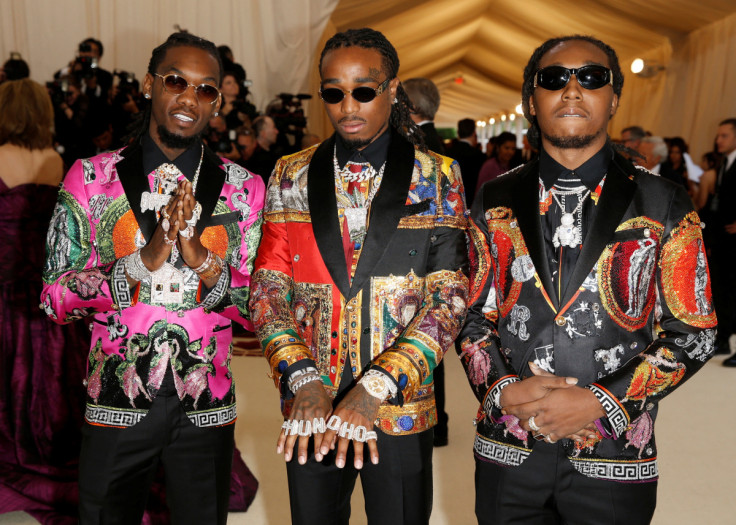What Is Fashion Workers Act? New York Models Push For Labor Protections Ahead Of Met Gala
KEY POINTS
- Models gathered outside the Met demanding lawmakers to pass the Fashion Workers Act
- They also called out the decision to honor late designer Karl Lagerfeld at this year's Met Gala
- The Fashion Workers Rights bill remains under consideration of the Senate Labor Committee
Several models and fashion designers rallied outside the Metropolitan Museum of Art in New York on Sunday demanding basic protection for workers in the $2.5 trillion global fashion industry.
Led by New York-based labor advocacy organization Model Alliance, models gathered outside the museum asking lawmakers to pass the Fashion Workers Act. Model Alliance founder Sara Ziff also called out the Met's decision to honor late designer Karl Lagerfeld, whom the models regard as "misogynistic and problematic."
The theme for this year's Met Gala, which is scheduled to begin Monday, is "Karl Lagerfeld: A Line of Beauty."
"What will undoubtedly be left unsaid about Lagerfeld, who I worked with regularly as a model, is any mention of his problematic attitudes towards women who did not fit his harmful and outdated standards," Ziff said, reported New York Post.
She noted it's high time that the leaders acknowledge the labor issues and rampant abuse in the fashion industry, asking them to condemn, not celebrate, figures who are known for taking advantage of the workers.
What is Fashion Workers Act?
Introduced in the state legislature last year, Fashion Workers Act seeks employment protections for models and others in the industry. Despite massive support from activists, labor organizers and leading industry groups such as the Council of Fashion Designers of America, the bill has failed to come to a vote.
Supporters of the Fashion Workers Act, including the likes of Sen. Brad Hoylman, D-N.Y., and Rep. Karines Reyes, argue that the act, if signed into law, will not only grant workers more control over their work but also provide protections against harassment and abuse, which they say go hand-in-hand with the financial challenges faced by models and other stakeholders.
The Fashion Workers Act calls on management agencies to establish a fiduciary duty to act in the best interests of the workers and also seeks agencies to provide models with copies of contracts and agreements. Most importantly, it aims to protect the health and safety of models by establishing a zero-tolerance policy for abuse, harassment, discrimination and unsafe working conditions. Fashion workers have long been demanding a fair market value with no extra charges cut from their income.
The Fashion Workers Act is under consideration of the Senate Labor Committee, Hoylman said. If signed into law, the proposed bill would require fashion companies to accept legal responsibility to work in the best interest of their employees.
Model Rozi Levine believes the act would help people like her escape the vicious cycle of sexual and financial abuse.
"I have gone months at a time without any income despite the fact that I was consistently being booked," Levine said. "Being forced into this financial struggle made me vulnerable mentally, emotionally, and eventually sexually.
"I was sexually abused because of the financial abuse that I was already facing," Levine told Business of Fashion. "I was receiving paychecks months after being told I was going to receive them. I was receiving random hidden fees taken out from my checks and my bank account directly."
Critics of the bill claim model and talent agencies are being singled out unfairly. Agencies blame brands for unstable working conditions on contract work.
"If brands are the end consumer and they solicit a service from someone, they should be ultimately responsible for paying that person," said Claudia Wagner, co-founder of Ubooker, a talent booking app.
New York has long been a trendsetter and leader in the global fashion industry. New York's fashion industry employs 180,000 people, accounting for 6% of the city's workforce. It helps generate $10.9 billion in total wages, Model Alliance wrote on its website.

© Copyright IBTimes 2025. All rights reserved.






















